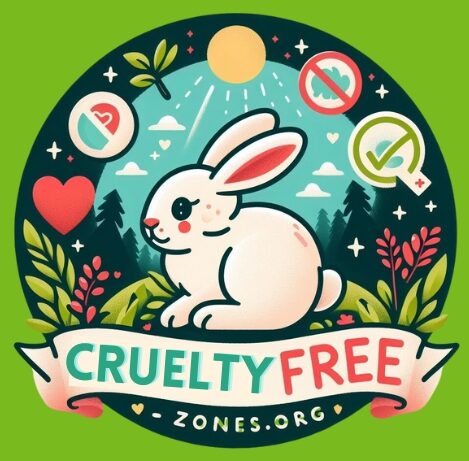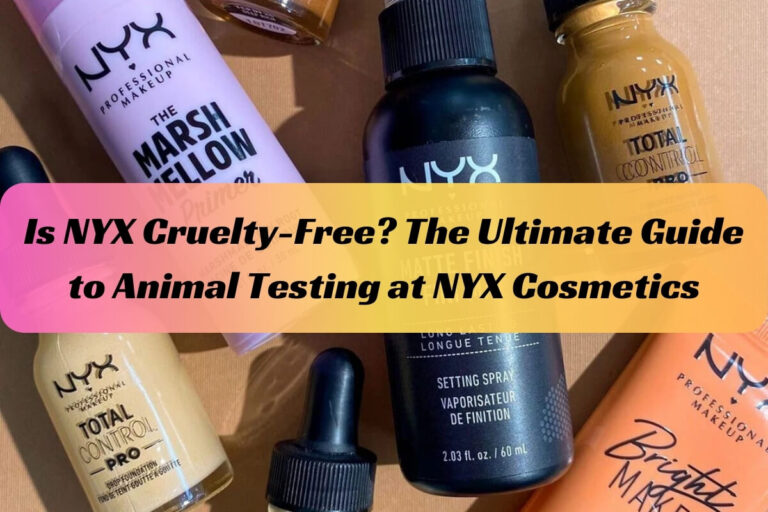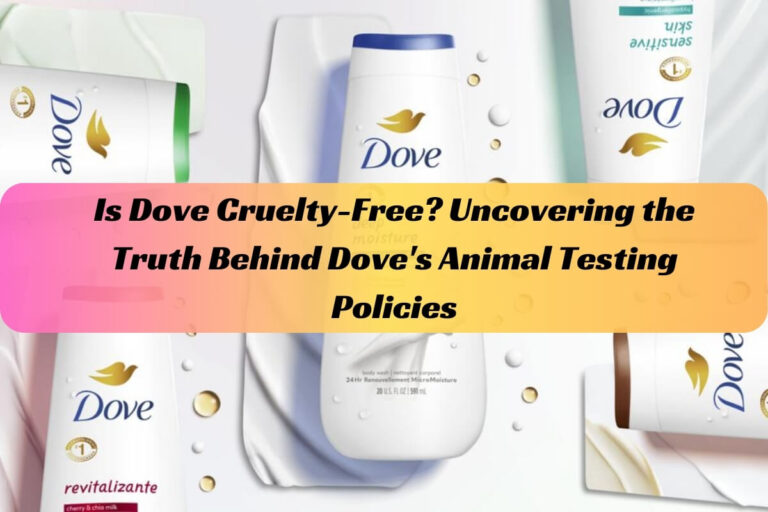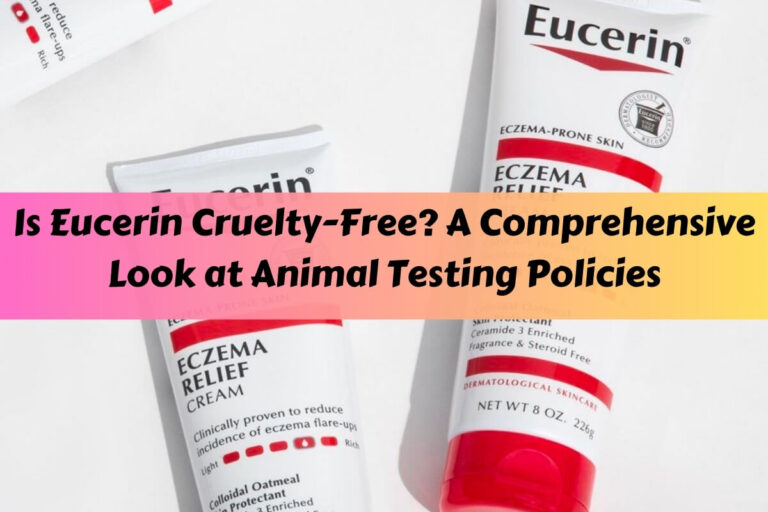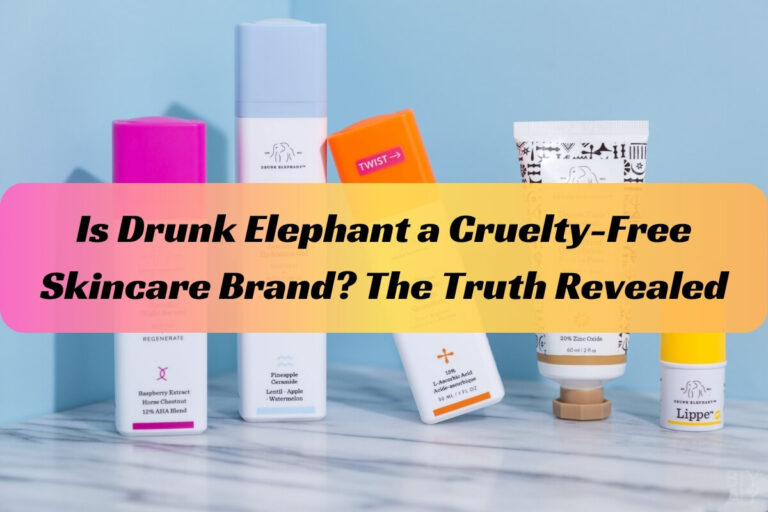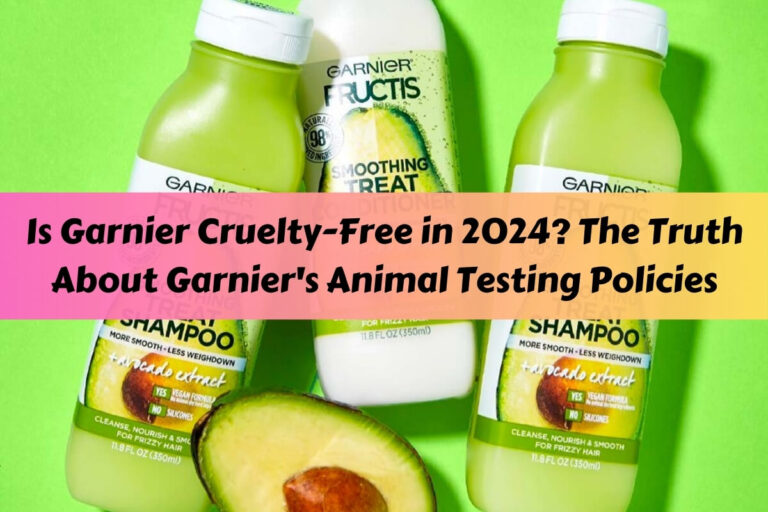Is Neutrogena Cruelty-Free? The Truth About Their Animal Testing Policies
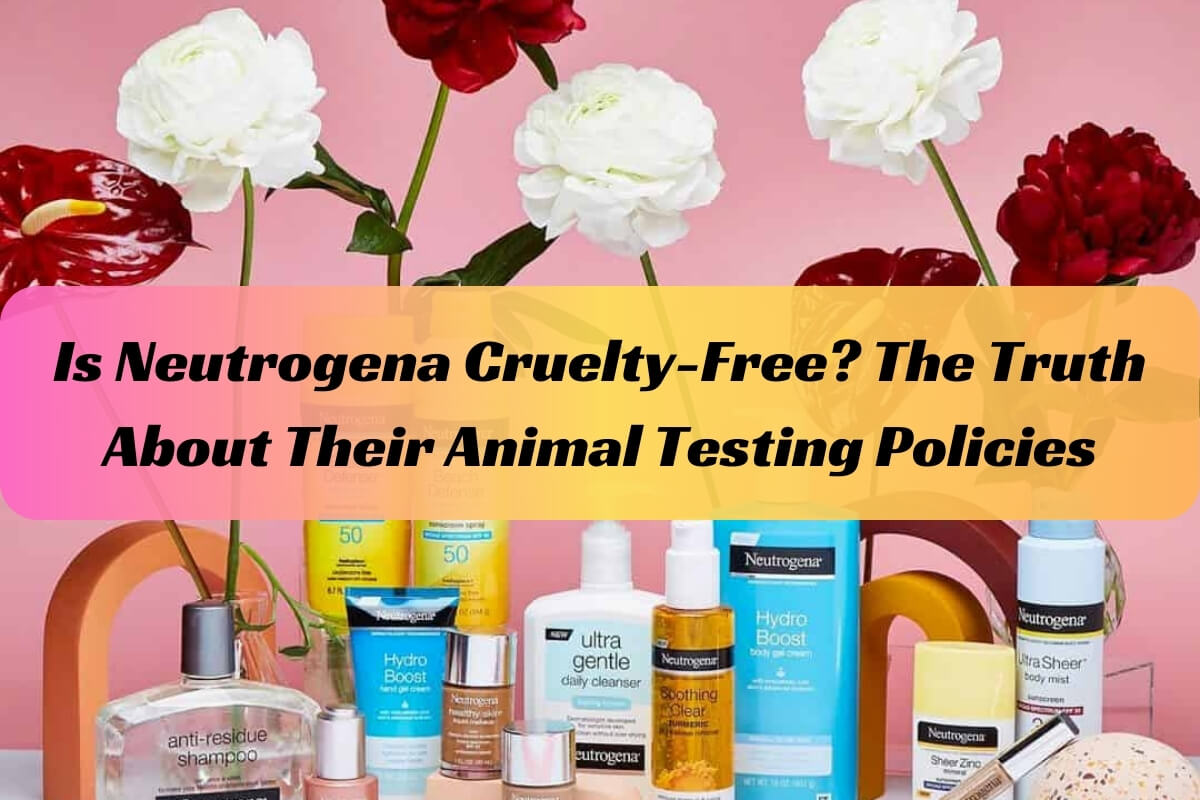
Many conscious consumers wonder if Neutrogena, a popular skincare brand, tests its products on animals. This concern arises for those following a vegan or cruelty-free lifestyle. This post examines Neutrogena’s animal testing policies and certifications to reveal the truth about their practices. It also suggests cruelty-free alternatives, helping you make informed choices as a consumer.
The short answer is no, Neutrogena is not cruelty-free. Despite their claims of caring for animal welfare, the brand continues to sell products in countries where animal testing is required by law, and they lack crucial certifications from organizations like PETA and Leaping Bunny. Additionally, their parent company, Johnson & Johnson, has a history of conducting animal testing, which further complicates Neutrogena’s cruelty-free status.
In this comprehensive guide, we’ll cover the following topics:
- What it means for a product to be cruelty-free
- Neutrogena’s official animal testing policy and statements
- Why Neutrogena is not certified as cruelty-free
- The impact of Johnson & Johnson’s animal testing policies
- Neutrogena’s availability in China and What it Means for Animal Testing
- Whether Neutrogena products are vegan
- Cruelty-free alternatives to popular Neutrogena products
- What consumers can do to support cruelty-free brands
- Frequently asked questions about Neutrogena’s cruelty-free status
So, let’s begin by understanding what it truly means for a product to be cruelty-free.
What Does It Mean to Be Cruelty-Free?
Cruelty-free products are those that have not been tested on animals at any stage of their development or production. This includes both the finished product and the individual ingredients used in the formulation. Cruelty-free is often used interchangeably with the phrase “not tested on animals.”
Being cruelty-free and vegan are not the same. Cruelty-free means no animal testing, while vegan means no animal-derived ingredients. A product can be one or both.
The issue of animal testing in cosmetics is a contentious one, with many consumers becoming increasingly aware of the ethical implications of using products that have been tested on animals. While some argue that animal testing is necessary for ensuring product safety, others believe that there are alternative methods available that do not involve harming animals.
Neutrogena’s Stance on Animal Testing
On their website, Neutrogena states the following regarding their animal testing policy:
“NEUTROGENA® cares about the welfare of animals and consequently does not conduct animal testing in the research or development of any of its products. Unfortunately, some countries still require animal testing data to approve new cosmetic products for sale, which is why we will continue to advocate for alternative cosmetic testing methods. At NEUTROGENA®, safety is our first priority and we believe that our products can be validated as safe and effective without compromising animal welfare.”
At first glance, this statement seems to suggest that Neutrogena is a cruelty-free brand. However, upon closer inspection, there are a few red flags.
First, Neutrogena admits that it will continue to sell products in countries where animal testing is required by law. This means that while they may not conduct the animal testing themselves, they are complicit in the process by allowing third-party companies or government agencies to test their products on animals.
Second, the use of the phrase “unfortunately, some countries still require animal testing data” implies that Neutrogena views animal testing as a necessary evil, rather than a practice that should be eliminated.
Finally, the statement does not address whether Neutrogena uses ingredients that have been tested on animals by their suppliers or third-party companies.
Neutrogena’s stance on animal testing is unclear. They claim to care about animal welfare, but their actions contradict this. Selling products in countries where animal testing is required raises ethical concerns.
Is Neutrogena Certified Cruelty-Free?
One of the most reliable ways to determine a brand’s cruelty-free status is to look for certifications from reputable organizations. Unfortunately, Neutrogena is not certified as cruelty-free by any of the major organizations, such as PETA’s Beauty Without Bunnies program or Leaping Bunny.
These certifications are important because they require brands to undergo rigorous audits and provide proof that they do not test on animals at any stage of their product development or production. Additionally, certified brands must ensure that their suppliers and third-party companies also adhere to the same cruelty-free standards.
Without these certifications, it’s difficult to verify whether Neutrogena is truly cruelty-free or not. While they claim not to test on animals themselves, they do not provide any transparency regarding their suppliers’ practices or their willingness to sell in countries where animal testing is required.
Many consumers prefer to support brands that have obtained cruelty-free certifications, as it provides a level of assurance and transparency that is often lacking with uncertified brands.
Neutrogena’s Parent Company – Johnson & Johnson
Neutrogena is owned by Johnson & Johnson, a multinational corporation with a long history of animal testing. Johnson & Johnson’s animal testing policy states:
“Johnson & Johnson is committed to ensure the ethical treatment of animals used in laboratory settings to advance patient safety and well-being. Johnson & Johnson operating companies have policies and guidelines in place that drive the ethical and humane treatment of the animals we use, and that promote the use of nonanimal alternatives whenever feasible. We support and participate in efforts to obtain regulatory acceptance of alternative testing methods. Our standards for animal care and use are intended to meet or exceed all applicable regulations.”
While Johnson & Johnson claims to promote the use of non-animal alternatives whenever possible, they still conduct animal testing when they believe it is necessary or required by law. This policy applies to all of their subsidiaries, including Neutrogena.
The fact that Neutrogena is owned by a company with such a track record of animal testing further complicates their cruelty-free status. It raises questions about whether Neutrogena truly has the autonomy to implement a comprehensive cruelty-free policy or whether they are beholden to the practices of its parent company.
Other non-cruelty-free brands owned by Johnson & Johnson include Aveeno, Clean & Clear, and Johnson Baby.
Neutrogena’s Availability in China
One of the biggest controversies surrounding Neutrogena’s cruelty-free status is its decision to sell products in mainland China. China has historically required animal testing for most cosmetic products, although there have been recent changes to these laws.
As of May 2021, China has lifted its requirement for animal testing on general cosmetics such as shampoos, lotions, and makeup. However, this exemption does not apply to products classified as “special-use” cosmetics, such as sunscreens, hair dyes, and products marketed with new functional claims.
Evidence suggests that Neutrogena products are readily available in physical stores and online retailers in mainland China. This means that, at the very least, some of their products have likely undergone animal testing to comply with Chinese regulations.
Even if Neutrogena claims that they do not directly conduct animal testing themselves, their decision to sell in China implies that they are willing to allow third-party companies or government agencies to test their products on animals on their behalf.
This is a significant issue for many consumers who prioritize cruelty-free products, as it contradicts Neutrogena’s claims of caring about animal welfare and seeking alternative testing methods.
Is Neutrogena Vegan?
While being cruelty-free and being vegan are not the same thing, many consumers who follow a vegan lifestyle also prioritize cruelty-free products. Unfortunately, Neutrogena is not a vegan brand.
According to their website and product information, some Neutrogena products contain animal-derived ingredients such as beeswax, lanolin, and carmine. These ingredients are commonly used in cosmetics and skincare products but are not considered vegan.
Neutrogena products aren’t truly vegan if the brand tests on animals, even if the product lacks animal-derived ingredients.
For strict vegans who avoid all forms of animal exploitation, Neutrogena products may not align with their ethical values, even if a particular product does not contain animal-derived ingredients.
Cruelty-Free Alternatives to Neutrogena
If you’re looking for cruelty-free and vegan alternatives to popular Neutrogena products, there are plenty of options available from brands that prioritize ethical and sustainable practices.
Here are a few popular cruelty-free and vegan skincare brands to consider:
Pacifica Beauty
Pacifica is a 100% vegan and cruelty-free brand that offers a wide range of skincare, makeup, and haircare products. Their products are formulated with natural and plant-derived ingredients, and they are certified by PETA and Leaping Bunny.
Some popular Pacifica products that can replace Neutrogena offerings include their Coconut Milk Cream to Foam Face Wash (an alternative to Neutrogena’s cleansers) and their Sea Foam Complete Face Wash (an alternative to Neutrogena’s acne treatments).
Derma E
Derma E is a cruelty-free and vegan-friendly brand that focuses on natural and eco-friendly skincare solutions. Their products are free from synthetic fragrances, parabens, and other harsh chemicals.
For those looking for a cruelty-free alternative to Neutrogena’s Hydro Boost line, Derma E’s Hyaluronic Acid Skincare Collection is an excellent option. It includes a serum, moisturizer, and eye cream that help hydrate and plump the skin.
Yes To
Yes, To is a well-known drugstore brand that offers cruelty-free and vegan skincare products made with natural ingredients like fruits and vegetables. Their products are affordable and widely available in stores like Target and Walmart.
For an alternative to Neutrogena’s facial wipes, Yes To’s Grapefruit Brightening Facial Wipes are a great cruelty-free option that helps remove makeup and impurities while brightening the complexion.
These are just a few examples of the many cruelty-free and vegan alternatives available on the market. When searching for ethical skincare products, it’s important to look for certifications from organizations like PETA and Leaping Bunny, as well as thoroughly research the brand’s policies and practices.
What Can Consumers Do?
As conscious consumers, it’s crucial to make informed choices and support brands that align with our values. When it comes to cruelty-free products, there are several steps we can take:
- Research and verify cruelty-free claims: Don’t take a brand’s word for it when it claims to be cruelty-free. Look for independent certifications and read through their policies carefully to ensure they are not engaging in any form of animal testing, either directly or through third-party companies.
- Contact brands for clarification: If a brand’s cruelty-free status is unclear, reach out to them directly and ask for clarification on their animal testing policies, ingredients, and supplier practices.
- Support certified cruelty-free brands: When possible, choose to purchase from brands that have obtained cruelty-free certifications from reputable organizations like PETA and Leaping Bunny. These certifications provide a level of transparency and accountability that is often lacking with uncertified brands.
- Educate others: Spread awareness about the importance of cruelty-free products and ethical consumption practices. Share your knowledge with friends, family, and fellow consumers to help create a demand for more cruelty-free options in the market.
- Stay informed: Stay up-to-date on the latest developments and changes in animal testing laws and regulations, both domestically and internationally. This will help you make more informed decisions when supporting cruelty-free brands.
We hold the power to shape the market and influence companies to adopt more ethical practices. By making conscious choices and supporting cruelty-free brands, we can create a more compassionate future.
Frequently Asked Questions
Is Neutrogena PETA-approved?
No, Neutrogena is not PETA-approved or part of PETA’s Beauty Without Bunnies program. This program certifies brands as cruelty-free and animal-friendly, which Neutrogena does not qualify for due to their animal testing practices and policies.
What is Johnson & Johnson’s cruelty-free policy?
Johnson & Johnson, Neutrogena’s parent company, does not have a cruelty-free policy. Their animal testing policy states that they conduct animal testing when they believe it is necessary or required by law, and they promote the use of non-animal alternatives whenever possible.
Do all of Neutrogena’s products get tested on animals?
While Neutrogena claims not to conduct animal testing themselves, their products may still be subject to animal testing in countries where it is required by law, such as China. Additionally, their suppliers and third-party companies may conduct animal testing on ingredients used in Neutrogena products.
Is Neutrogena considering becoming cruelty-free?
There is no public information suggesting that Neutrogena has plans to become a fully cruelty-free brand shortly. As long as they continue to sell their products in countries that require animal testing and lack transparency regarding their suppliers’ practices, it is unlikely that they will achieve cruelty-free status.
Conclusion
In conclusion, despite Neutrogena’s claims of caring about animal welfare, the evidence suggests that the brand is not truly cruelty-free. Their willingness to sell products in countries where animal testing is required, their lack of cruelty-free certifications, and their connection to the animal-testing practices of their parent company, Johnson & Johnson, all contribute to this assessment.
For consumers who prioritize ethical and compassionate products, it may be best to explore cruelty-free and vegan alternatives from brands that have obtained certifications and are transparent about their practices. By supporting these brands, we can collectively create a demand for more ethical and sustainable options in the beauty and skincare industry.
Our consumer choices can shape the market and influence companies to adopt ethical practices. By staying informed and making conscious decisions, we can help end animal testing for cosmetic products.
Ultimately, the decision to support Neutrogena or seek cruelty-free alternatives is a personal one, based on your values and priorities. However, it’s crucial to have access to accurate information and to understand the implications of your choices as a consumer.
